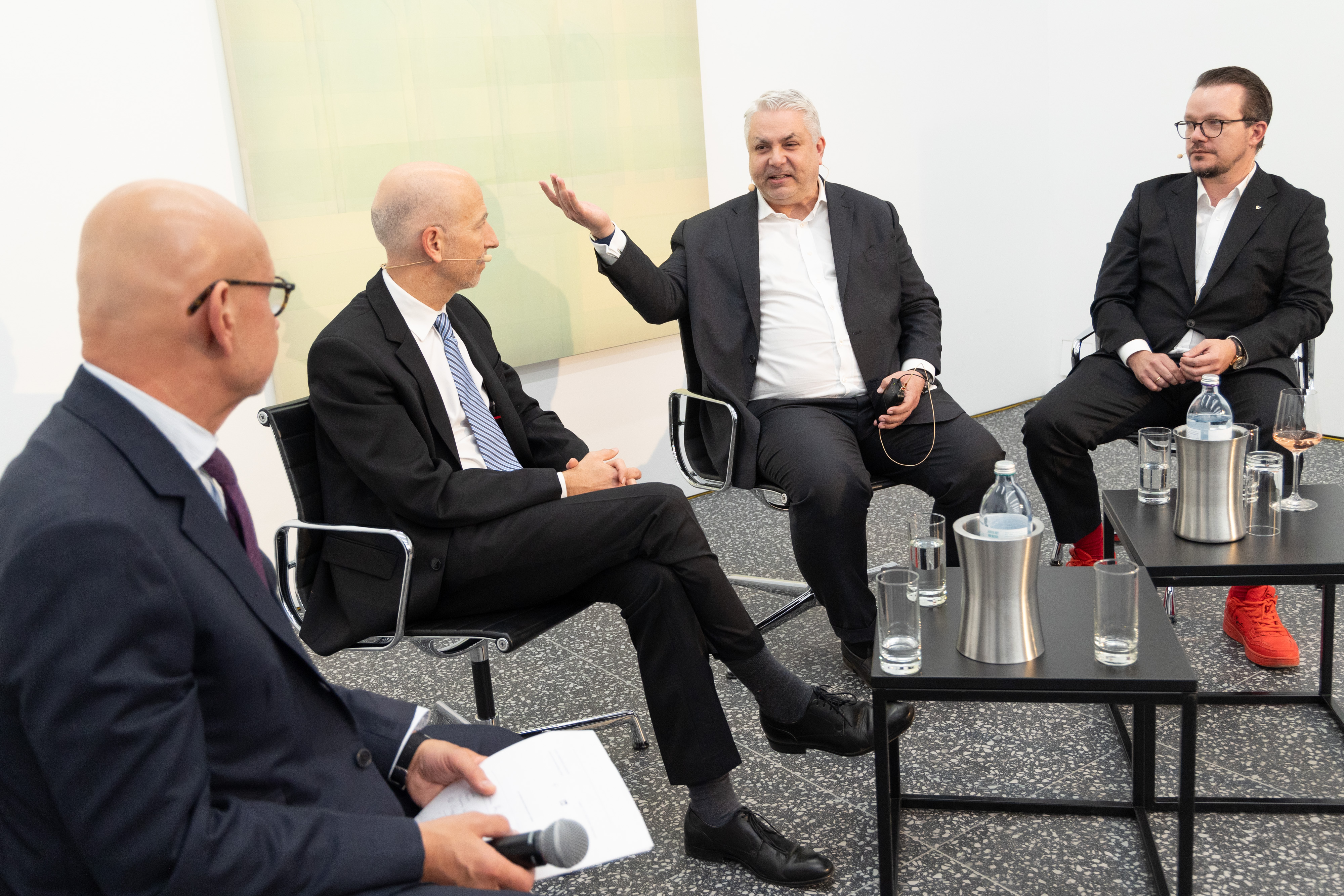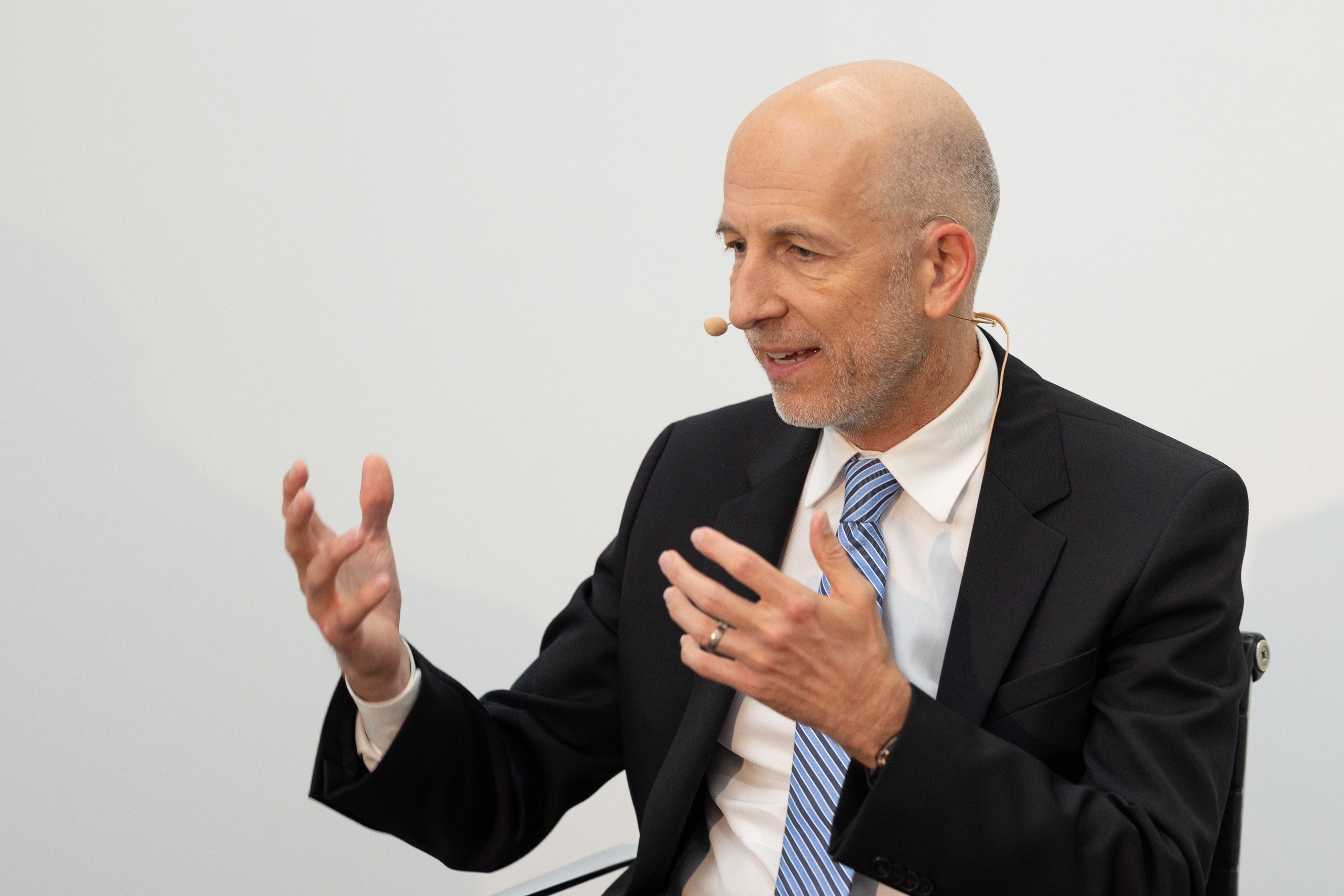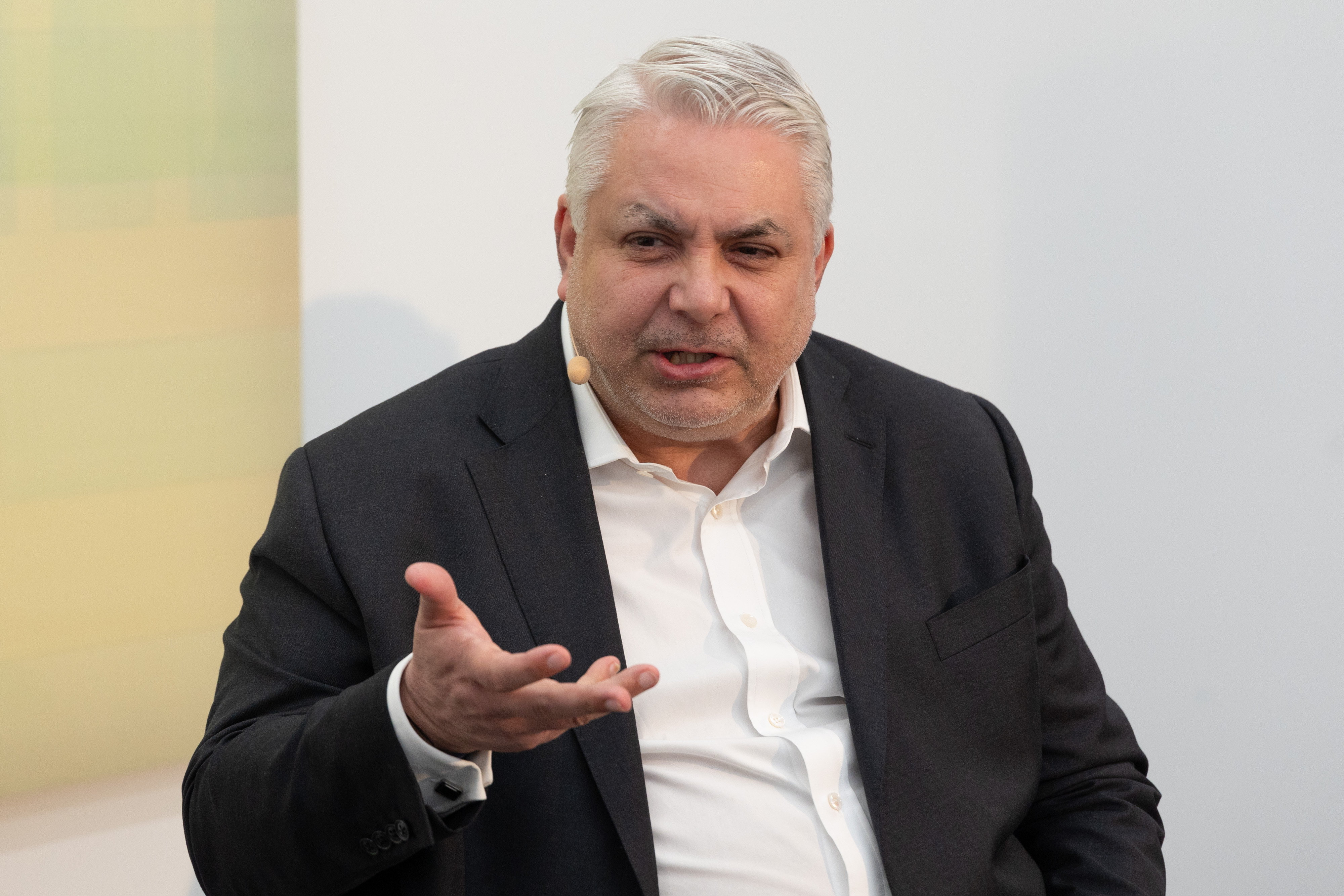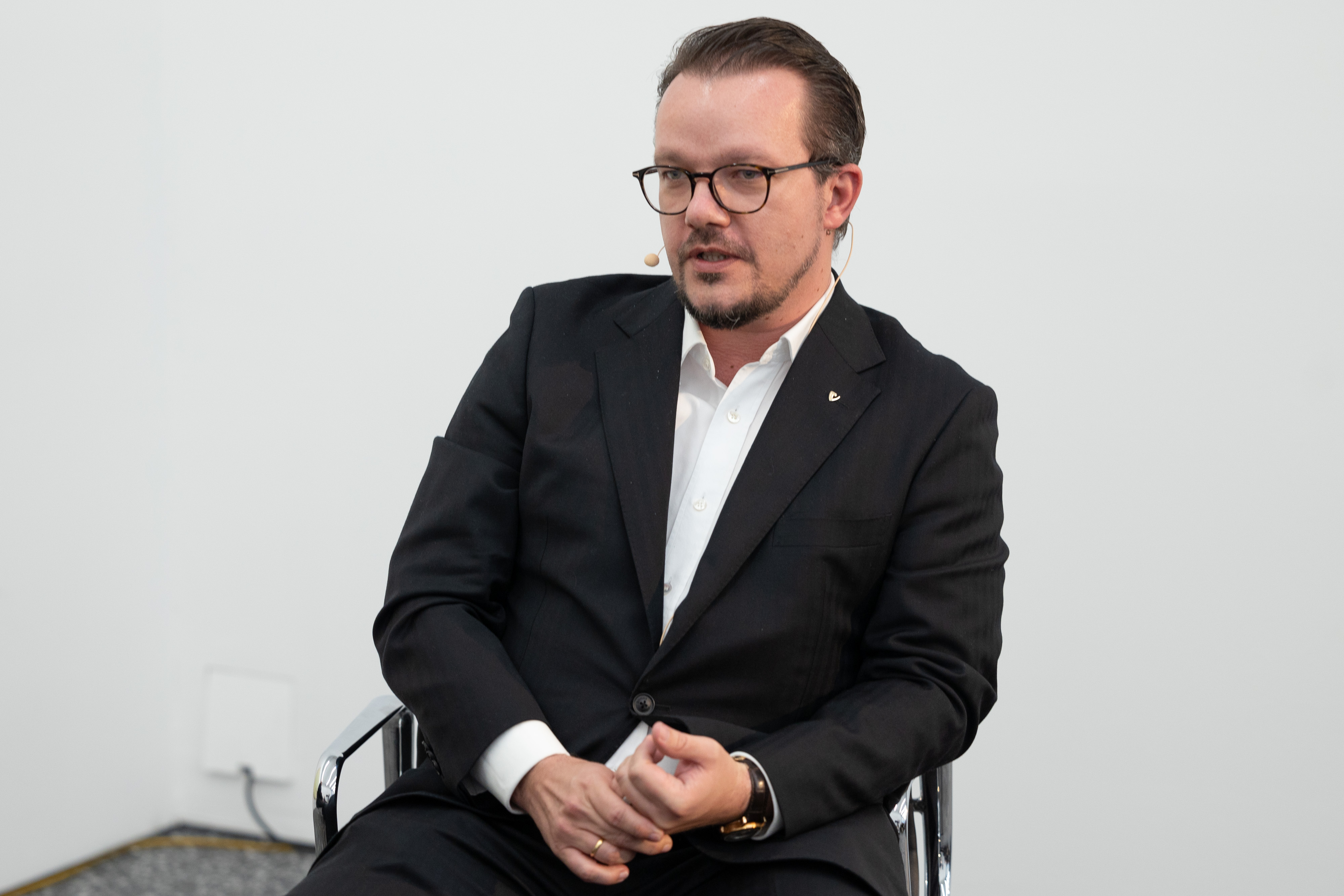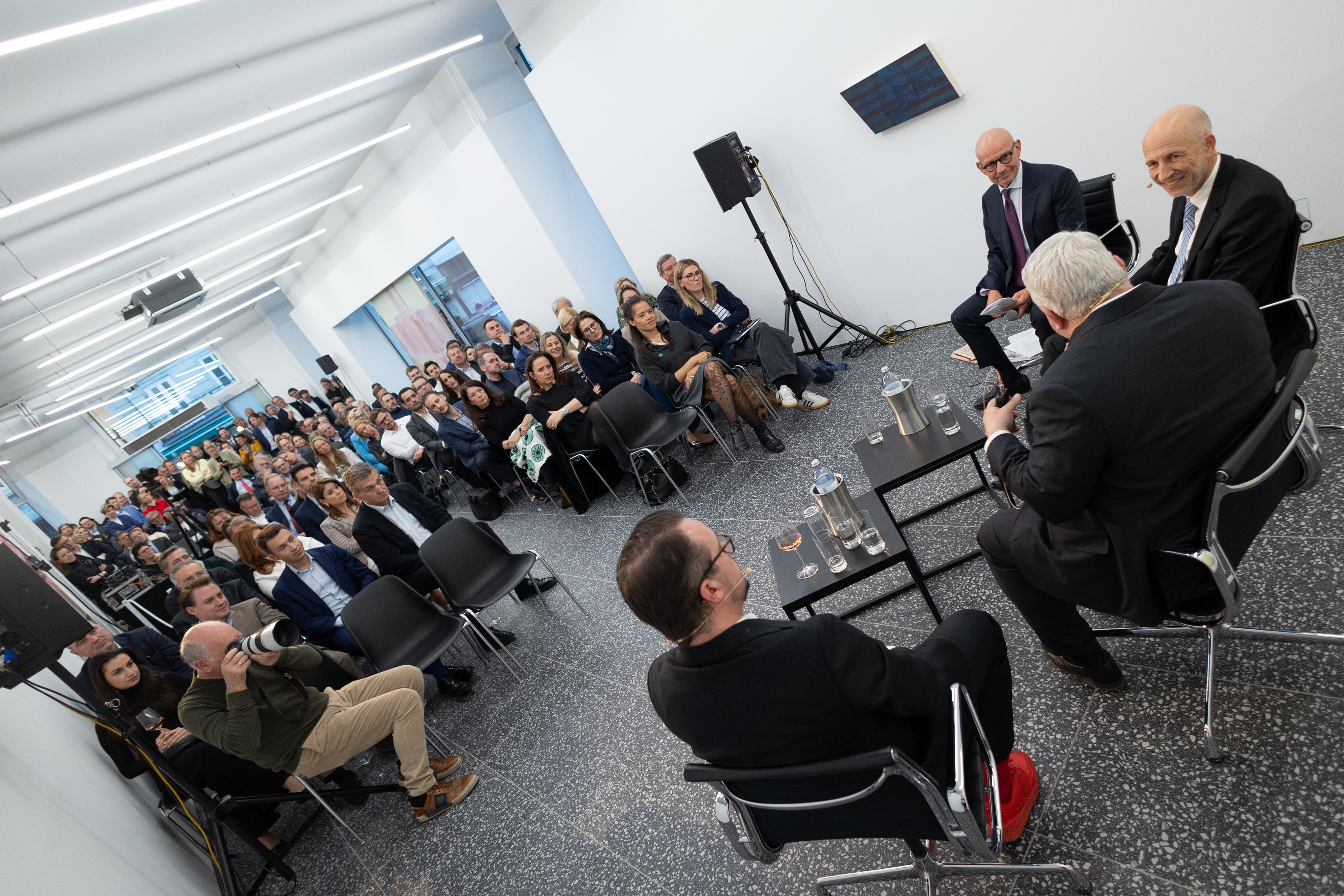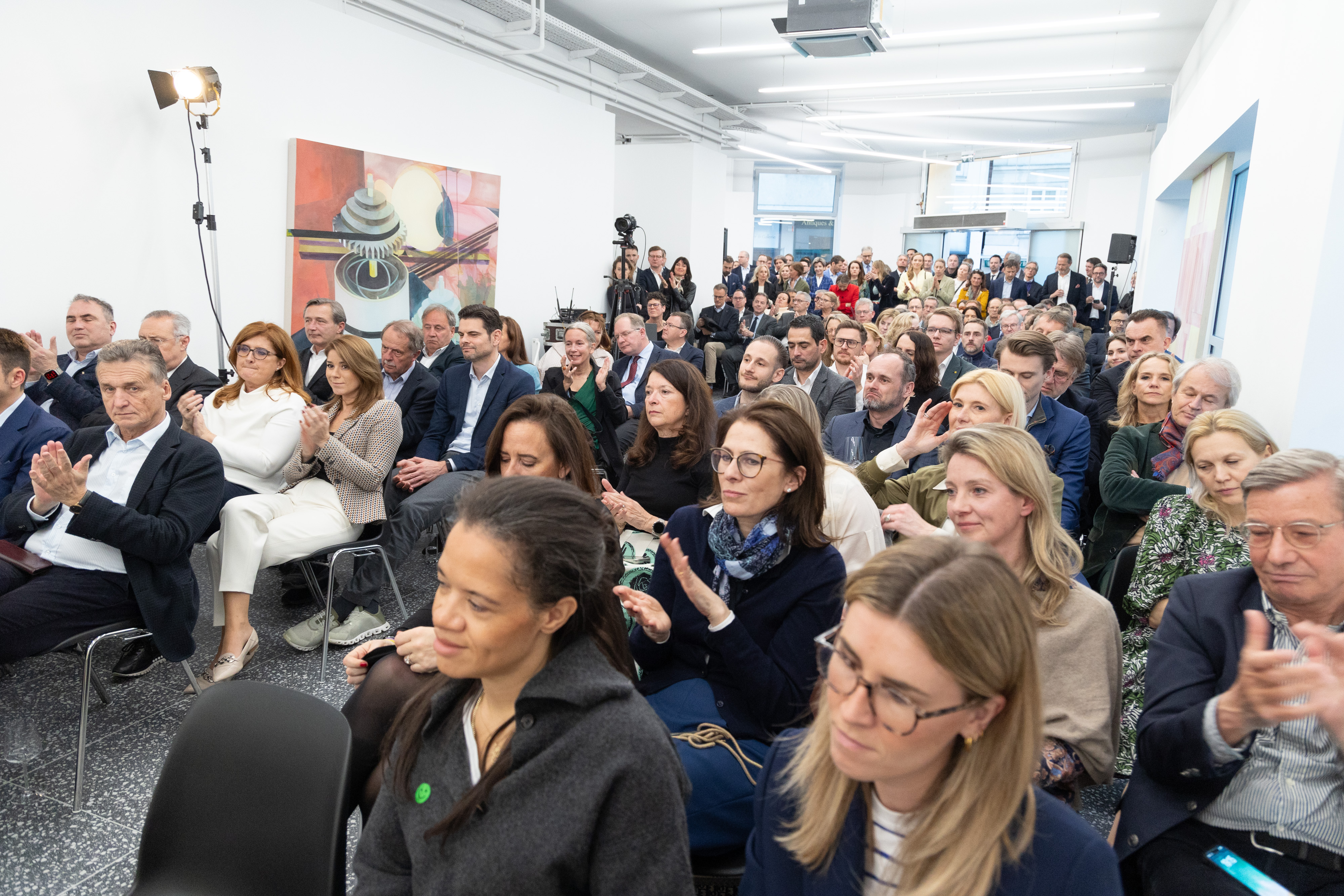Salon Z: Europe as a banking and financial center quo vadis?
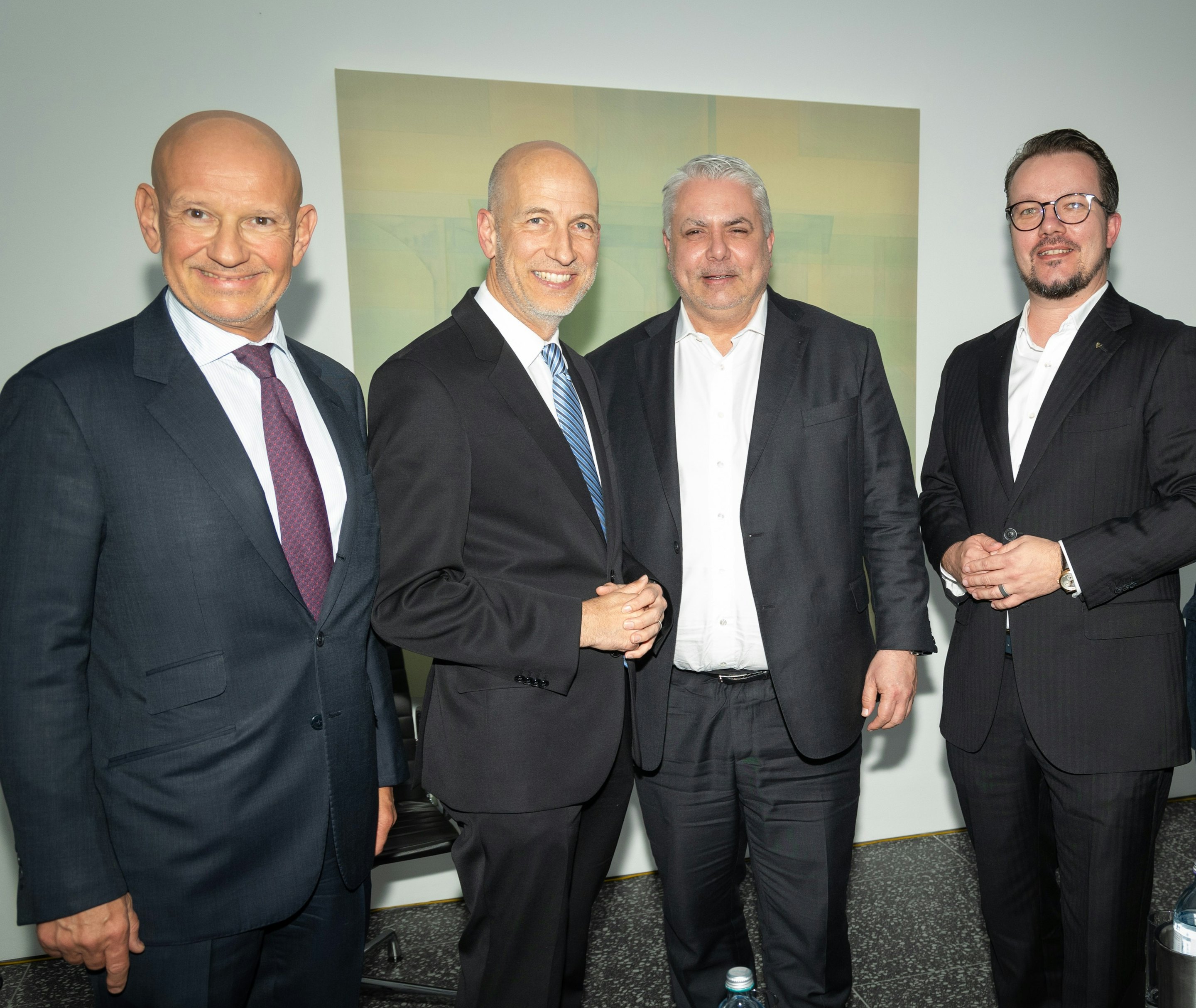
At our first Salon Z of the year, one thing became quickly clear: the world is undergoing a dramatic transformation – politically, economically, and technologically. And right at the center of it all: Europe. The question is not just “what comes next,” but also “who do we want to be?” Under the moderation of host and PANTARHEI founder and CEO Markus Schindler, high-ranking guests discussed how the European banking and financial sector can – and must – respond to these challenges. About 200 guests from business, culture, media, and politics accepted the invitation to the Galerie Layr in Vienna’s First District.
The high-profile panel included:
-
Dr. Peter Bosek, CEO of Erste Group
-
Univ. Prof. Dr. Martin Kocher, Incoming Governor of the Austrian National Bank
-
Mag. Berthold Baurek-Karlic, Chairman of the Board, Venionaire Capital AG
An Era of Upheaval
Geopolitical changes, fueled by technological disruption, demand realignment. The current economic model is being questioned – along with the entire European banking and financial system.
Martin Kocher put it into context:
“We are in a time that we will later recognize as profoundly transformative.”
While it’s tempting to see the present as unusually turbulent, this time truly is different. After a relatively stable period from 2012 to 2020, the world now faces multiple crises: pandemic, war, energy prices, global shifts in competition. Particularly affected: Europe – a continent heavily reliant on open trade and dependable partnerships.
“Europe’s competitiveness is at risk. We now need measures that make us more resilient and agile.”
„Economcs follows Politics again“
Peter Bosek sees a paradigm shift from the banking sector’s perspective:
“Politics no longer follows economics – it’s the other way around. We’re back in a power game.”
International rules and stability – the foundations of the global economic system for decades – are increasingly giving way to power-driven politics. Countries like the USA and Russia are pursuing hardline national interests. China acts strategically. Europe, meanwhile, still struggles to present a unified response and is falling behind.
Bosek demands:
“Europe must find its voice – and speak with unity.”
But it’s not just on a global level that action is needed. Nationally, things must also move:
“We can’t wait for a new federal government to magically kickstart the economy. The question is: what can we all do to steer things back in a positive direction?”
Disruption as an Opportunity
While many perceive the current crises as threats, Berthold Baurek-Karlic sees above all one thing: potential.
“I often ask myself: should we cry over Trump – or thank him? Because change also brings opportunity.”
Disruption is the core business of innovative investors. Indeed, topics like digital sovereignty, defense tech, or capital market access are gaining new relevance under geopolitical pressure. Baurek-Karlic calls for more speed, more courage – and a new self-image for Europe as a high-tech hub:
“Austria has the most top talents per capita in the world – we need to finally make use of that.”
But to succeed, we need more than just vision – we need solid structural conditions. He warns:
“To regain clout, we can’t become a communist-style Sisi museum. Art is beautiful and important – but we’re capable of so much more, and we need to leverage that and project it better across Europe.”
Out of the Comfort Zone, Into Responsibility
Peter Bosek makes it clear: economically, Austria is in a strong position. Private households hold record assets of around €870 billion, unemployment is low, the education system is solid. Yet – the mood is gloomy. People are insecure, hesitant, skeptical. While Eastern Europe is investing heavily, Austrians are busy saving. This reluctance reflects a deeper issue: a lack of confidence, of optimism, of belief in the future. What’s missing – according to Bosek – is a European sense of self-confidence.
“We need to enjoy creating things again. Performance must regain a positive connotation.”
Instead of waiting passively, we need initiative – from individuals, businesses, and politicians alike. Most importantly: the state must stop relying on short-term stimulus and start creating long-term conditions that promote innovation and entrepreneurship.
Conclusion: The future is open – but can be shaped
The engaging discussion clearly showed: Europe stands at a crossroads. The economic and political challenges are real – but they can also serve as a trigger for much-needed reform.
What is needed now:
-
A clear geopolitical positioning for Europe
-
Investment in digital and technological sovereignty
-
Courage for change and more optimism – both nationally and across Europe
-
Valuing performance again and promoting entrepreneurship
-
Eliminating complex structures and overregulation
-
A new way of dealing with crises and disruption – not as threats, but as opportunities
The good news: Europe has all the prerequisites to emerge stronger from current geopolitical and economic upheavals. We have the talent, foundational structures, and innovative strength not just to survive – but to lead again. But to seize the opportunities in a newly forming global economy, a different sense of urgency is needed – and a willingness to deregulate swiftly and decisively. Only then can talent be brought back and investment capital mobilized. Both are present in Europe – and in sufficient quantity. It’s time to prove it.
As Peter Bosek aptly put it: “Wealth comes from work.” And that applies not just to individuals – but to all of Europe.
